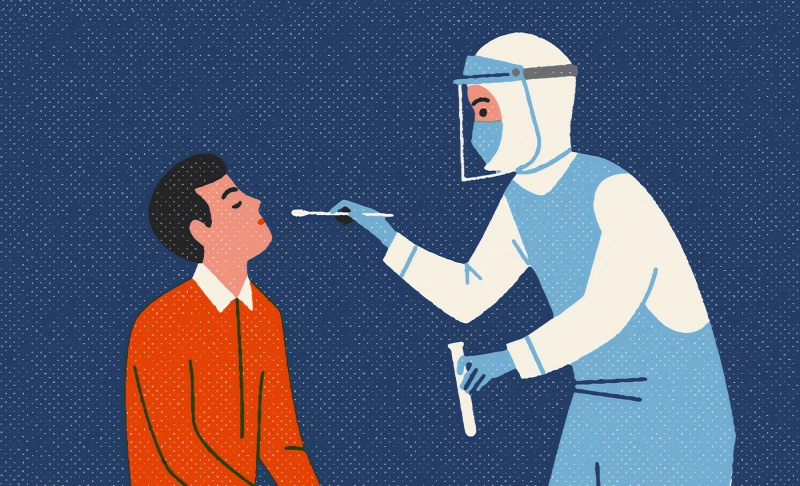By: Sunil Kumar
June 15 2021

There is no scientific evidence that proves that the PCR test can make a person's forehead magnetic.
There is no scientific evidence that proves that the PCR test can make a person's forehead magnetic. On May 25, 2021, a South Korean blog called Naver stated that repeated RT-PCR tests for COVID-19 made the forehead magnetic. The blog post included a video clip of a woman placing a coin and a key on her forehead. The items appeared to stay connected and in place even after she shook her head. According to Cleveland Clinic, Polymerase Chain Reaction (PCR) test is used to detect genetic material from a specific organism, such as a virus. A PCR test is one of the methods used to diagnose SARS-CoV-2. The test can detect the presence of the virus, which lets one if they are negative or positive. The University of Otago's Department of Biochemistry stated that the test is done by a healthcare worker who scrapes the back of the nasopharynx using a swab with a long shaft. The nasopharynx is the upper portion of the throat, located just behind the nose. A spokesman for the Korea Disease Control and Prevention Agency (KDCA) told AFP on May 28, 2021, that a PCR test does not touch a person's forehead. "It has no basis in science and makes no sense," he said. According to the South Korean Ministry of Education (SKME), static friction is one reason why metal items can be connected to the human body. Friction between two or more solid objects that are not moving relative to each other is known as static friction. Many fake social media posts claim that taking the PCR test will make one's forehead magnetic, but there is no scientific evidence to prove it. The COVID-19 pandemic has given rise to a lot of potentially dangerous misinformation. For reliable advice on COVID-19 including symptoms, prevention and available treatment, please refer to the World Health Organisation or your national healthcare authority.